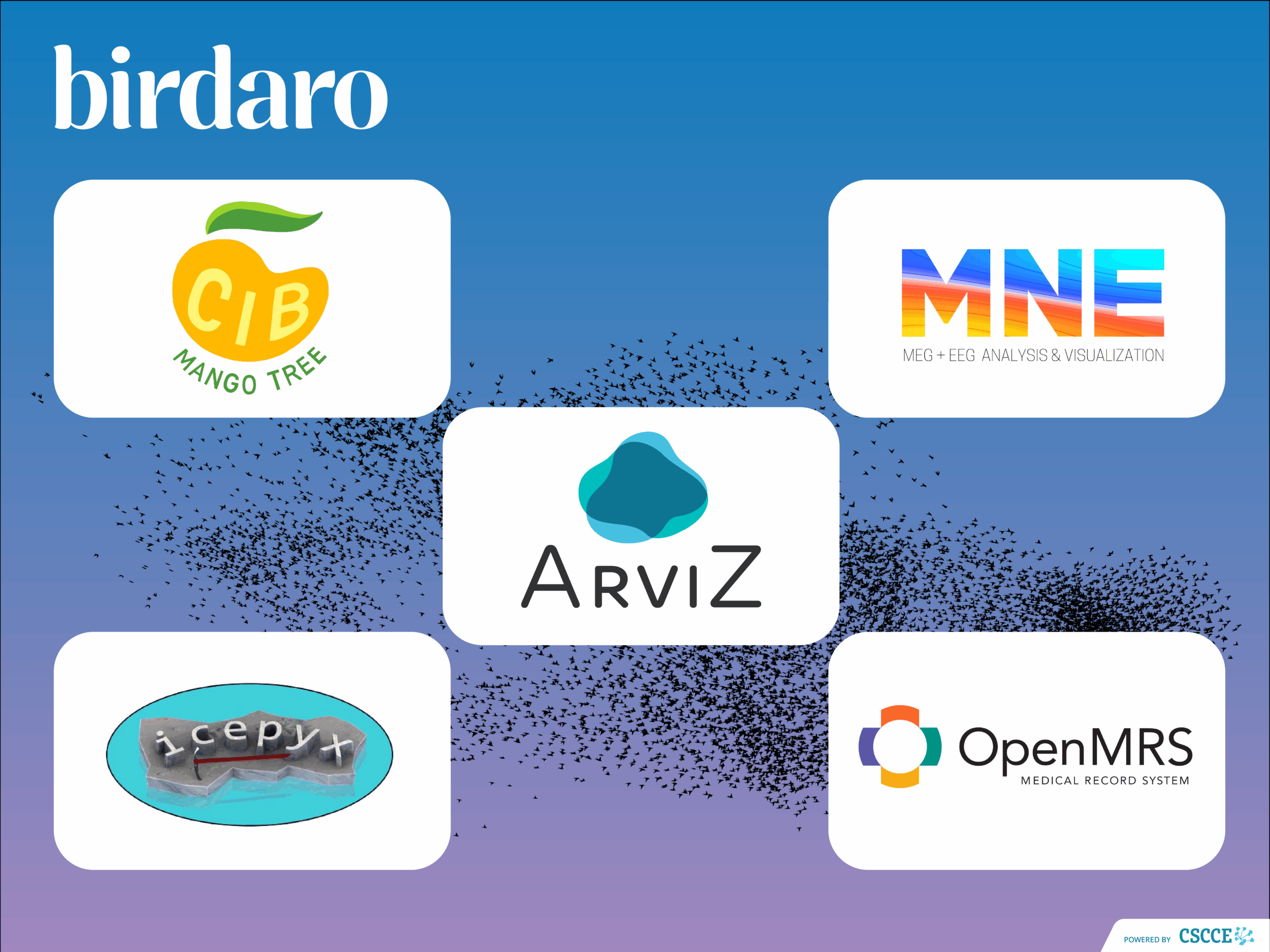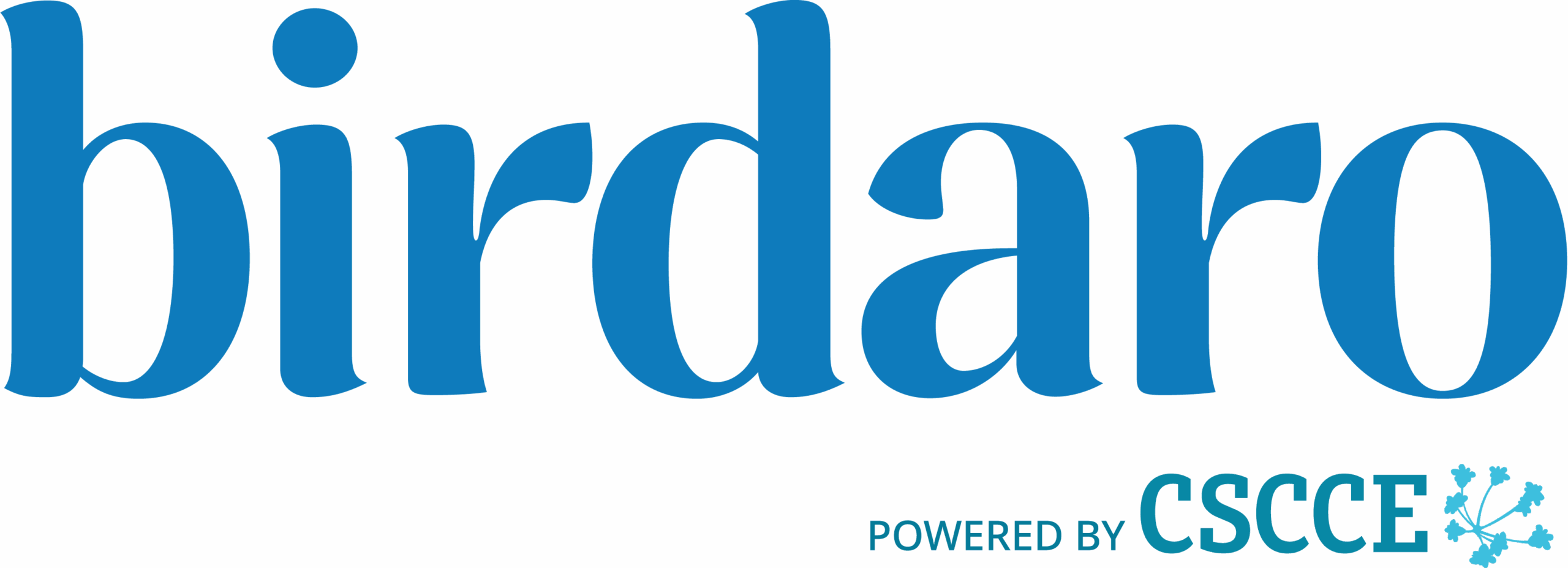Introducing the inaugural Birdaro training program cohort: Part 5
At the end of last month we launched the pilot cohort of the Birdaro training program for open-source leaders, which will run for 12 weeks until mid-December 2025.
Thanks to strong interest in the program, we have put together a cohort that represents a variety of focus areas, fiscal homes, project stages and project sizes. You can read more about how we intentionally built this cohort of participants, and used their input to iteratively shape the pilot curriculum in an earlier blog post.
In this series of five blog posts, we’re introducing you to the teams taking part in the Birdaro 2025 pilot cohort. In this post, we’re featuring the following open-source software tools:
- CIB Mango Tree – OS software that allows non-technical researchers to investigate large social media datasets
- MNE-Python – A tool for analysis and visualization of human neuroimaging data
- ArviZ – A tool for exploratory analysis of Bayesian models
- icepyx – A tool for querying, obtaining, reading, analyzing, and manipulating NASA’s ICESat-2 data
- OpenMRS – An open source Electronic Medical Records platform used around the world
You can read more about each of these projects below, and visit this page of the Birdaro website to learn more about individual team members.

Project bios
Project bios are based on information provided by the project teams during the application and registration process.
CIB Mango Tree
CIB Mango Tree is building free and open source software programs that allow non-technical researchers to investigate large social media datasets for signs of inauthentic behavior and manipulation. The programs are packaged into a single application, allowing researchers to access the tech without any software programming ability whatsoever. The CIB Mango Tree project team are particularly interested in developing low-cost solutions for project management across a distributed volunteer community – which a comprehensive playbook or contributor guide will definitely help with!
Note: participants from this project are joining us for the multi-week course portion of the program only, due to scheduling conflicts.
MNE-Python
MNE-Python is a tool for analysis and visualization of human neuroimaging data including MEG, EEG, sEEG, ECoG, NIRS, and more. Hosted at the University of Washington, new funding from the US NSF’s Pathways to enable Open Source Ecosystems program will hopefully provide the foundation for project growth and scaling, especially when it comes to community engagement and user contributions.
Note: participants from this project are joining us for the multi-week course portion of the program only, due to scheduling conflicts.
ArviZ
ArviZ provides tools for exploratory analysis of Bayesian models, from prior elicitation to posterior visualization, model criticism, or inference diagnostics. ArviZ brings together people from several probabilistic programming libraries and from multiple programming languages. The ArviZ project team sees the intersection of fundraising, governance, and community engagement as key to the sustainability of the project.
Icepyx
icepyx aims to simplify the process of querying, obtaining, reading, analyzing, and manipulating NASA’s ICESat-2 data to enable scientific discovery. These datasets are large (500 GB of data is produced per day) and complex (a given file might have over 200 variables, including multiple paths to get to common variables like latitude, longitude, and height), making them cumbersome to interrogate for many researchers. In addition to developing the software itself, the icepyx team places a heavy emphasis on community engagement and education; striving to create a welcoming atmosphere and use peer learning to encourage new contributors who don’t consider themselves “developers” and are new to collaborative development.
OpenMRS
OpenMRS is currently the world’s leading open source Electronic Medical Records platform, sustained by a global community. It is a platform that countries and implementers use to create a customized EMR system in response to needs on the ground. The purpose of OpenMRS is to improve healthcare delivery in resource-constrained environments by coordinating a global community that creates and sustains a robust, scalable, user-driven and open-source medical record platform. The OpenMRS team is currently thinking about sustainability in terms of community engagement, with volunteers contributing to the project via local hubs around the world.
Additional information
- You can also explore individual participant bios, on the Birdaro website.
- You can find out more about the curriculum we’ve developed to support the pilot cohort participants’ shared interest in governance and documentation here.
Check out the other participating projects
Post 1: OpenWellness, movement, Open Source with SLU, and the Community Software Facility (NCAR)
Post 4: The R Project, RSpace, AsyncAPI, OpenRefine, and Scikit-learn





